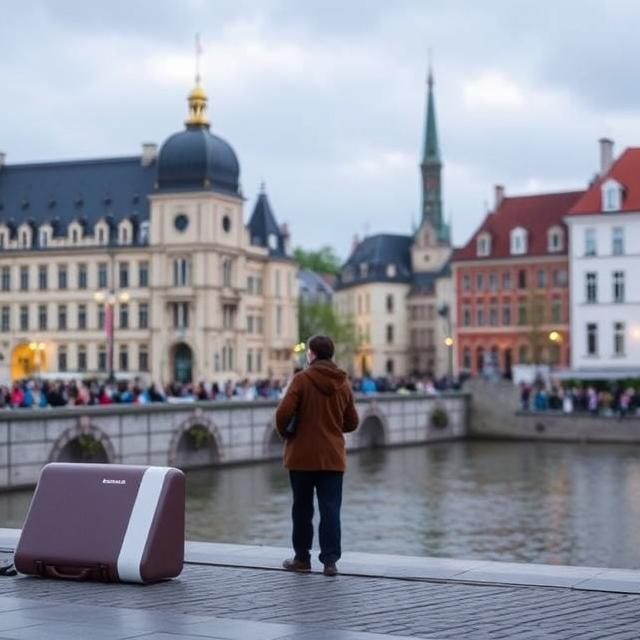Traveling the world is a dream for many, but the idea of expensive flights, luxury hotels, and costly excursions often holds people back. However, with the right strategies, you can explore new countries, experience different cultures, and create lasting memories—all without breaking the bank. Here are some practical tips to help you travel the world on a budget.
1. Be Flexible with Travel Dates
One of the most effective ways to save money on your travels is by being flexible with your travel dates. Flight prices can vary significantly depending on the time of year, day of the week, and even the time of day you choose to fly. Here’s how you can save:
- Use Fare Comparison Websites: Tools like Google Flights, Skyscanner, and Kayak allow you to compare prices across multiple airlines and give you an overview of the cheapest dates to fly.
- Travel During Off-Peak Seasons: Flying during off-peak seasons (e.g., mid-week or shoulder seasons between major holidays) can drastically reduce flight and accommodation costs. Avoid traveling during school breaks or public holidays when prices tend to skyrocket.
2. Take Advantage of Budget Airlines
Budget airlines offer significantly cheaper flights compared to full-service airlines. These airlines often provide no-frills services, meaning they charge extra for things like checked luggage, food, and seat selection. However, if you’re willing to travel light and don’t mind fewer amenities, budget airlines are an excellent way to cut down on your travel costs.
- Popular Budget Airlines: Look for budget airlines like Ryanair, EasyJet, AirAsia, Southwest, and Spirit Airlines for affordable flights, especially for regional or short-haul trips.
- Book Early: Budget airlines typically offer the best deals when booked in advance, so plan your trip ahead of time to secure the lowest prices.
3. Use Public Transportation
While taxis and ride-sharing services are convenient, they can quickly add up, especially in expensive cities. Public transportation is a cost-effective alternative that allows you to travel within cities and between destinations at a fraction of the cost.
- Metro and Buses: Most cities have affordable metro or bus systems that can take you to popular tourist attractions, local markets, and nearby neighborhoods.
- Travel Passes: Many cities offer public transportation passes that provide unlimited travel for a set period, allowing you to save money if you plan on using public transport regularly.
- Trains and Buses for Long-Distance Travel: In many countries, trains and buses are an affordable way to travel long distances. In Europe, the Eurail pass offers unlimited train travel, while intercity buses can be an affordable option in countries like the U.S., Mexico, and Southeast Asia.
4. Book Accommodation Wisely
Accommodation is often one of the biggest expenses when traveling. However, there are many ways to find budget-friendly options without compromising comfort or safety.
- Hostels and Budget Hotels: Hostels are a great choice for budget travelers, offering affordable dormitory beds or private rooms. Look for hostels on platforms like Hostelworld or Booking.com. Budget hotels and guesthouses are also often available for low prices, especially in less touristy areas.
- Vacation Rentals: Websites like Airbnb, Vrbo, or Couchsurfing can help you find affordable private rooms or apartments, often at lower prices than traditional hotels.
- House Sitting: If you have flexibility and want to stay in a location for an extended period, consider house sitting. Websites like TrustedHousesitters connect travelers with homeowners who need someone to care for their pets and home while they’re away, providing you with free accommodation in exchange for your services.
5. Eat Like a Local
Food can be a major part of your travel budget, but eating out in touristy areas can be expensive. Instead, embrace the local cuisine and eat where the locals go. Here’s how you can save on food:
- Street Food: Street food is often inexpensive, delicious, and a great way to experience authentic local flavors. Whether you’re in Southeast Asia, South America, or Europe, street food stalls offer tasty meals at a fraction of the cost of restaurant dining.
- Local Markets: Visiting local food markets allows you to buy fresh, affordable ingredients to prepare your own meals if you have access to a kitchen. In many destinations, markets offer great deals on fruits, vegetables, cheeses, meats, and bread.
- Avoid Tourist Traps: Restaurants near major tourist attractions tend to be overpriced. Walk a few blocks away from the main sights to find more affordable eateries popular with locals.
6. Travel Overnight
Overnight transportation, such as buses, trains, and flights, can save you money on both accommodation and transportation. This allows you to travel long distances while catching up on sleep, leaving more time to explore your destination during the day.
- Overnight Trains/Bus Rides: Many countries have overnight train and bus services that connect major cities. These services often have sleeper cabins or reclining seats, allowing you to rest while traveling between destinations. Look into overnight routes, especially when traveling across regions or continents.
7. Embrace Free Activities
You don’t need to spend money to experience a destination’s culture and beauty. There are plenty of free or low-cost activities available, from sightseeing and hiking to cultural events and festivals.
- Free Walking Tours: Many cities offer free walking tours led by knowledgeable local guides. While these tours are technically free, it’s customary to tip the guide at the end based on your satisfaction.
- Free Museums and Attractions: Numerous museums, art galleries, and historical sites offer free entry on certain days of the week or during special events. Research ahead of time to find these free days in your destination.
- Outdoor Activities: Nature is free, so take advantage of national parks, hiking trails, beaches, and scenic viewpoints. Many outdoor activities like walking, hiking, and swimming are either free or cost very little.
8. Travel Insurance
While it may seem like an additional cost, travel insurance can save you a significant amount of money in case of emergencies. If you get sick, your luggage is lost, or you need to cancel your trip, travel insurance can cover these expenses and help you avoid huge financial setbacks.
- Look for Affordable Travel Insurance: There are budget-friendly travel insurance plans that offer essential coverage without expensive premiums. Compare different policies and choose one that meets your needs and fits your budget.
9. Use Discount Cards and Passes
Many cities and countries offer discount cards and passes that give you access to multiple attractions at a reduced price. These cards often provide skip-the-line access, discounted public transport, and special deals at restaurants and shops.
- City Passes: Many major cities offer city passes that give you access to a variety of attractions for one low price. Popular examples include the Paris Pass, New York Pass, and London Pass, which allow you to visit multiple museums, monuments, and galleries at a discounted rate.
- Tourist Discount Cards: Many countries offer tourist discount cards for specific regions, which can help save on transportation, entrance fees, and food. These cards often come with additional perks, such as discounts on local tours or activities.
10. Work or Volunteer Abroad
If you have the flexibility to stay in one place for a while, consider working or volunteering in exchange for free accommodation and meals. There are many programs that allow you to work on farms, teach English, or assist in local projects while traveling.
- Work Exchanges: Platforms like Workaway, WWOOF (World Wide Opportunities on Organic Farms), and HelpX connect travelers with hosts who provide free accommodation and meals in exchange for work.
- Teaching English Abroad: Many countries offer opportunities to teach English in exchange for room and board, as well as a modest stipend. Countries like Thailand, Vietnam, and Cambodia are known for having popular TEFL programs.
11. Use Travel Rewards
If you travel frequently, take advantage of credit cards that offer travel rewards, such as frequent flyer miles, hotel points, or cash-back offers. Many credit cards allow you to earn rewards for everyday purchases that can be redeemed for flights, hotel stays, and other travel-related expenses.
- Sign-Up Bonuses: Many travel credit cards offer sign-up bonuses, which can help you save on your next trip. Just be sure to pay off the card in full each month to avoid interest charges.
12. Plan in Advance
Planning ahead can help you find the best deals on flights, accommodation, activities, and transportation. Researching your destination and booking tickets early can help you lock in the best prices.
- Set Alerts: Use price alert tools on flight and hotel booking websites to monitor prices and receive notifications when rates drop. This can help you book at the most affordable prices.





